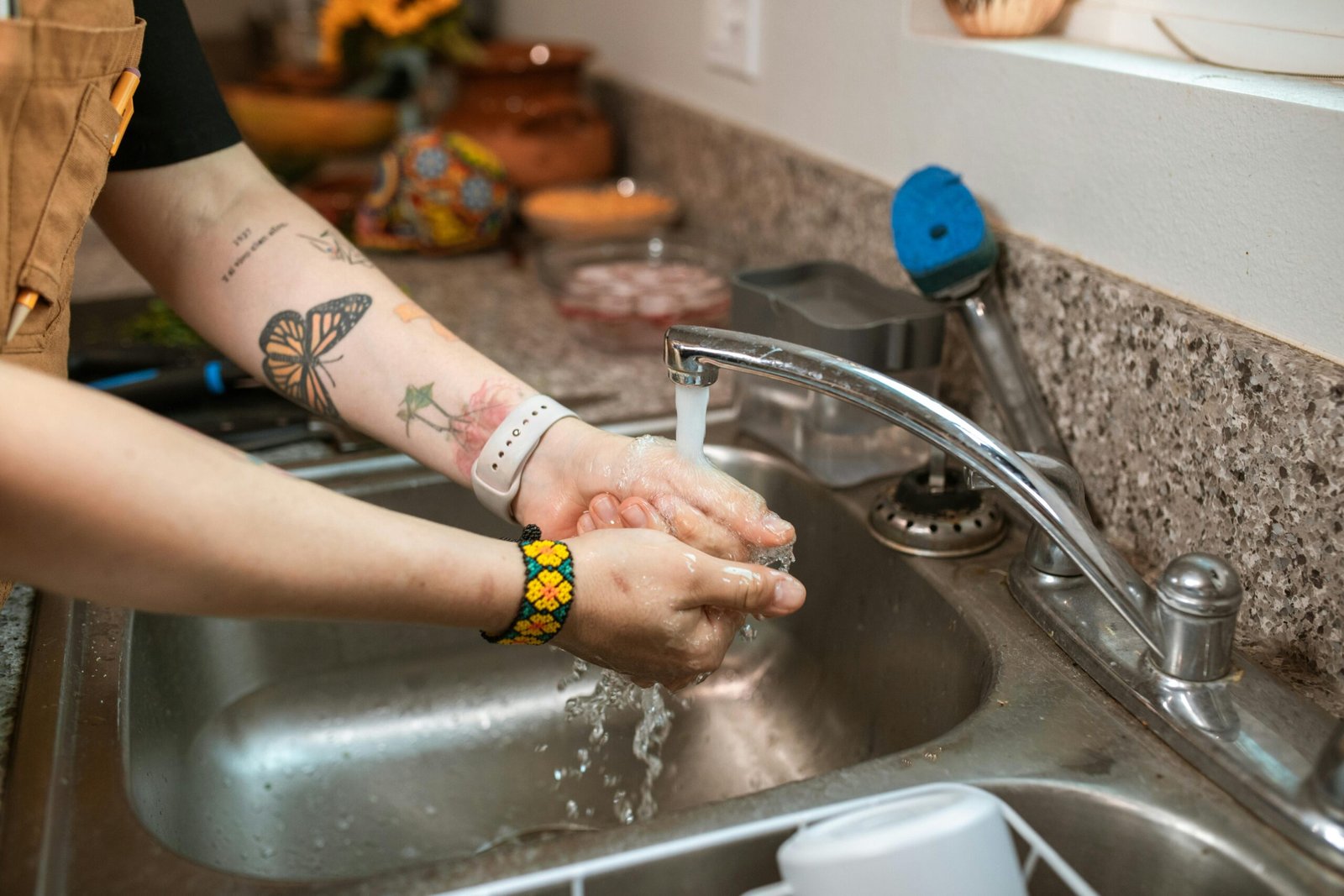The Power of Clean Hands: Saving Lives, One Wash at a Time
Introduction:
- There was a profound simplicity in our ignorance back in those carefree childhood days when the world was our playground and the ground beneath our feet was our painting. We were too busy having fun to notice the tiny dangers that were present on the very ground we had taken over. Despite the happiness, there was a cost associated with it, one that could be measured in fevers, stomachaches, and innumerable trips to the doctor. We had no idea that the solution to these problems was as easy as washing our hands with soap and water rather than using a mysterious charm or magical potion.
- Proper cleanliness habits, which are sometimes disregarded in our carefree youth, have the unmatched ability to protect our health. Hand washing is a powerful defence against a wide range of infectious diseases, including the common cold and more dangerous foes like influenza and gastroenteritis. Actually, research indicates that frequent hand washing can cut the risk of diarrheal illnesses by over 50% and respiratory infections by as much as 16%.
- The capacity of hand washing to impede the spread of infections is fundamental to its effectiveness. Unknowingly serving as carriers of illness, our hands are home to a vast ecology of germs and viruses that we take up from everything we come into contact with. However, this microbial zoo is quickly cleared out with the mild persuasion of soap and water, leaving behind a sterile surface and a barrier against disease.
- However, maintaining proper hygiene has far-reaching effects. In a society where people are always in close contact with one another, hand washing has a cascading effect on communities, preventing the spread of illness wherever it occurs. Hand washing is a basic precaution that may be taken anywhere—from busy markets to crowded classrooms, from busy cities to isolated villages—to protect against outbreaks and epidemics.
- Furthermore, the advantages of proper cleanliness go beyond the prevention of infectious diseases. We develop behaviors that support general health and well being by promoting a clean culture. For example, maintaining good dental hygiene shields against more subtle dangers like heart disease and respiratory infections in addition to preventing cavities and gum disease.
- Adherence to proper hygiene habits is a crucial component of human health, serving as a common thread that fosters resilience and vitality. They are the silent sentinels keeping watch on the attackers who wait in the darkness. Thus, let us remember the teachings we learned as children and embrace the transformational power of proper hygiene, which holds the promise of a safer and healthier future in its simplicity.
Understanding the Impact:
- Diarrheal diseases: The Silent Killer- According to the World Health Organisation (WHO), diarrheal diseases—dubbed the silent killers of our time—waste 1.5 million lives a year worldwide, with children under the age of five suffering the brunt of this burden. A study that was published in the International Journal of Community Medicine and Public Health found that the simple act of thorough handwashing could prevent nearly half of all instances of diarrhoea in India, where the impact is particularly noticeable. This figure highlights the crucial role that good hygiene habits, particularly handwashing, play in reducing the transmission of diarrheal infections. It also shows how important it is to embrace this basic but frequently disregarded component of good personal hygiene, as it has the potential to save countless lives.
- The Role of Handwashing: According to UNICEF, handwashing with soap has a critical role in preventing diarrheal illnesses and acute respiratory infections. It can reduce the risk of diarrheal illnesses by up to 47% and acute respiratory infections by 23%. The Centres for Disease Control and Prevention (CDC) has approved these statistics, which highlight the importance of good handwashing practices in preventing illness. According to CDC estimates, practicing good handwashing could prevent 20% of respiratory infections and about 30% of diarrheal illnesses. These figures emphasise the substantial influence that following basic hygiene practices, especially washing your hands, may have on public health outcomes. They also demonstrate how important it is to minimise the number of avoidable diseases and save lives on a global scale.
- Evidence in Action: Strong evidence of the effectiveness of handwashing promotion interventions in reducing the risk of illness among children under five was presented by a study carried out in Bangladesh. According to the results, these interventions significantly decreased respiratory infections by 21% and significantly decreased the incidence of diarrhoea by 30%. This study emphasises how effective handwashing is as a preventive step against a variety of infectious diseases, regardless of one’s location or cultural background. The study highlights the significant influence that proactive hygiene promotion can have on public health outcomes by focusing on this vulnerable population, especially in areas with limited access to healthcare facilities. These findings highlight the significance of including handwashing promotion in larger public health campaigns and highlight how it might reduce the burden of avoidable illnesses and improve community well-being globally.
Analysing the Science:-
The Reasons Why Handwashing Is Effective:

- Germs are invisible to the naked eye and lurk on hands and surfaces, waiting to cause mayhem when ingested or spread. Their invisible presence serves as a reminder of how crucial careful hand hygiene is to reducing the risk of sickness. Soap is a modest but effective ally in the fight against diseases because it damages the outer coats of germs, making them more susceptible to destruction. By using soap and water together, the hands are thoroughly cleaned, eliminating any microbiological trespassers that could endanger our health. This straightforward yet efficient method tackles invisible attackers hiding beneath the surface in addition to removing obvious dirt from hands. People strengthen their defences against the sneaky threat of infectious diseases by adopting the ritual of washing their hands with soap and water, protecting both their health and the health of those around them.
- The Global Impact: In addition to having an impact on individuals, poor hygiene has a ripple effect on entire communities and economies. The consequences of avoidable diseases ripple across health care systems, imposing heavy financial costs and taxing resources, especially in developing countries. In addition, the cost goes beyond financial considerations and includes, sadly, lost lives as well as lower productivity. Acknowledging the profound influence of cleanliness practices on the general welfare of society, we emphasise how important it is to give hygiene education and infrastructure development first priority in order to promote healthier, more resilient communities all over the world.
Taking Action: –
1. Education and Awareness: It is essential to educate people on the value of hand washing and the appropriate methods. Healthcare providers, communities, and schools are crucial in raising awareness. They are able to plant a more profound awareness of the role that hand cleanliness plays in preventing illness through educational programmes and hands-on demonstrations. We can make sure that information turns into an effective instrument for fostering healthy communities by including these important stakeholders.
2. Cultural and Behavioral Shifts: Cultural and behavioral shifts demand patience and persistence, particularly when altering deeply ingrained habits. By encouraging cultural norms that prioritize hygiene, lasting change becomes achievable. This process involves not only educating individuals but also fostering a societal ethos that values cleanliness and health. Through consistent messaging and community engagement, we can gradually reshape attitudes and behaviors, paving the way for a collective commitment to improved hygiene practices.
3. Accessible Resources: Having access to soap and clean water is essential, especially for underprivileged areas. In places with limited resources, creative solutions like mobile handwashing facilities provide a lifeline. These movable modules ensure accessibility and convenience by bringing hygienic amenities right to communities. Through the implementation of projects aimed at bridging the infrastructural gap, we may enable people to practise proper hand hygiene regardless of their circumstances, ultimately leading to enhanced health outcomes and general well-being.
The Role of Technology and Innovation:
The use of touchless faucets and sensor-based soap dispensers, among other options for more efficient cleaning, has revolutionised hygiene practices thanks to technological breakthroughs. Furthermore, interactive platforms for learning about hygiene are offered by mobile games and applications, which appeal to both adults and children. By utilising technology, we can improve public health outcomes by increasing the effectiveness of cleanliness practices and improving the accessibility and enjoyment of hygiene education.
Building a Hygienic Future:
- Community Engagement: Encouraging communities to support hygienic efforts promotes sustainability and ownership. Influencers and local leaders can lead to broad change through grassroots initiatives.
- Government Policies: – Governments are essential in putting laws into place that give infrastructure and education related to hygiene top priority. Long-term improvements in public health are achieved through investments in healthcare and sanitation systems.
- Corporate Responsibility: – Companies can fund, build infrastructure for, and educate employees about hygiene efforts. Health and sanitation-focused corporate social responsibility initiatives improve society as a whole.
Conclusion:
- Our awareness of the power of cleanliness has evolved in a way that has been nothing short of revolutionary, from reflecting on carefree days to addressing global health issues. We have the ability to prevent disease, save lives, and steer towards a healthier future by implementing simple yet important habits like handwashing.
- The seemingly insignificant act of washing your hands becomes a powerful tool that may combat infectious diseases across all demographics and geographic boundaries. Its simplicity and universality—a practice available to everyone, regardless of location or socioeconomic status—are what make it so effective.
- As we consider this trip, it is clear that maintaining good hygiene is not only an individual responsibility but also a community one, and it is a fundamental component of public health. By banding together and making hygiene a top priority, we pave the way for a day when avoidable illnesses are consigned to the annals of history.
- Therefore, let’s unite forces—clean ones, of course—and make cleanliness a global necessity rather than just a habit. One wash at a time, we can create a culture where everyone has the chance to succeed through coordinated efforts and unshakable dedication. By doing this, we not only protect people’s well-being but also build strong communities and a more promising and health-conscious future for future generations.
- Source of Information : https://www.who.int/campaigns/world-hand-hygiene-day

